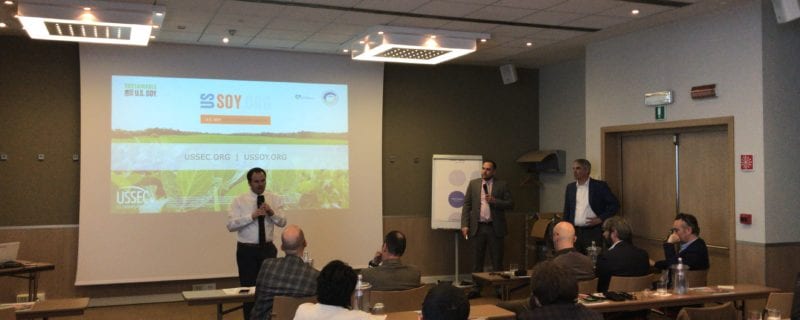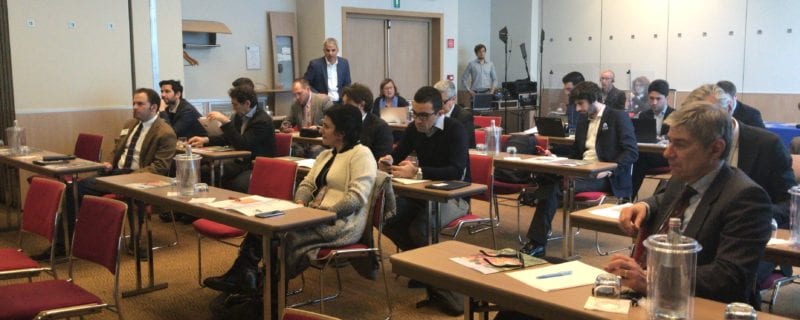U.S. Soy Farmers Help Expand Partnerships in Spain and Italy's Soy Industries
- Category:
- General News
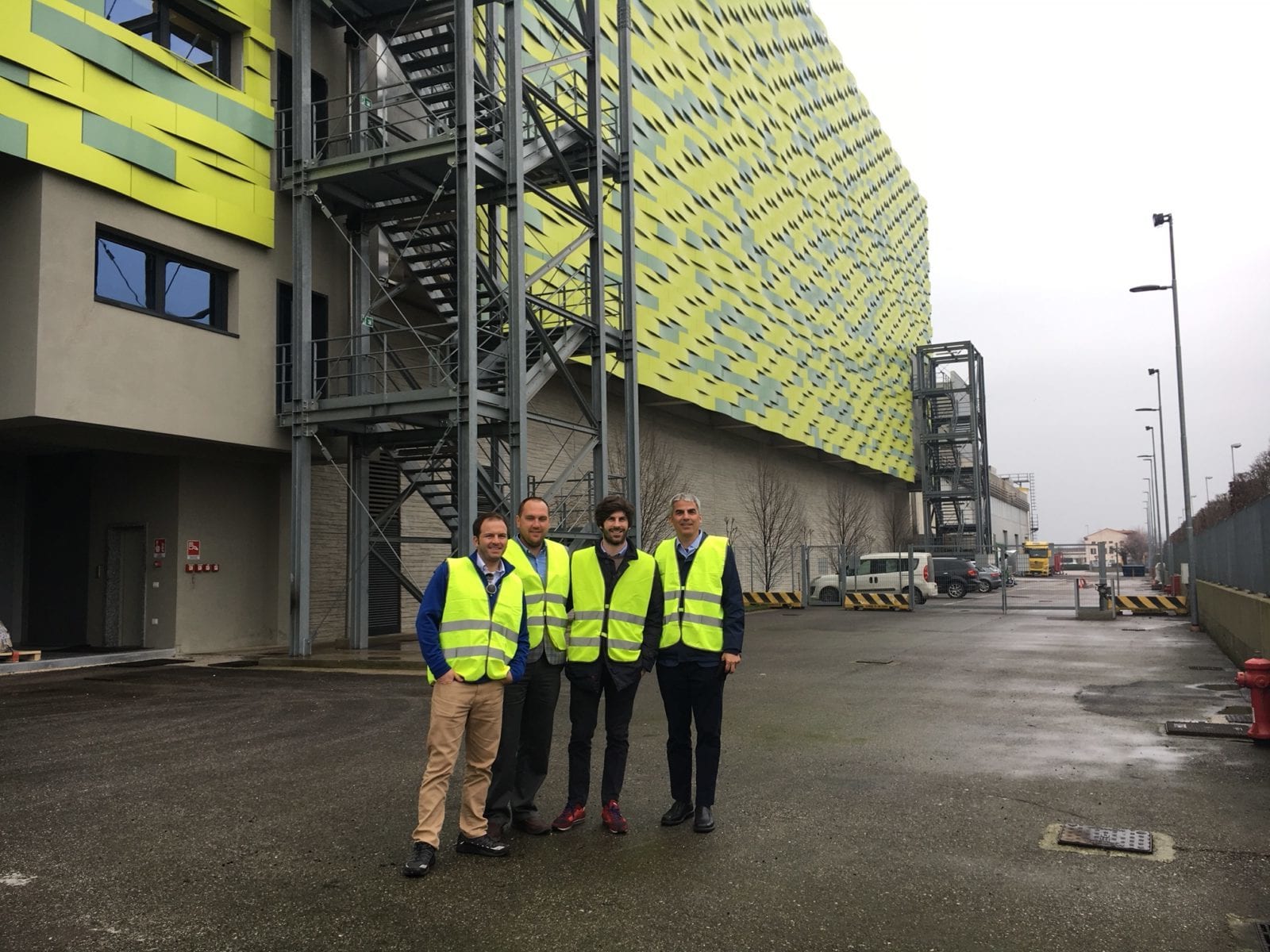
American Soybean Association (ASA) director Brandon Wipf, from South Dakota, and Cory Atkins, United Soybean Board (USB) director from Delaware, recently visited key industry partners in Spain and Italy. These two countries are major European customers of U.S. agriculture, importing 842,000 metric tons (MT) or 31 million bushels of U.S. Soy products so far in this marketing year.
Together with USSEC Regional Director EU – Middle East North Africa (MENA) Brent Babb, the group visited the headquarters and two crushing plants of Cereal Docks Group near Venice, Italy. They also visited their large private dock in the port that loads and unloads vessels. This company is the main local crusher in Italy, crushing 5,000 MT of soy daily, including 60 percent imported soybeans and 40 percent local Non-GMO production. The company is the largest independent soy crusher in Europe.
Cereal Docks entered the soy crushing business six years ago and in addition to their two crushing plants, they also have a vegetable oil refinery and a biodiesel plant.
Italy produces 17 million tons of feed annually, including feed on farm. The country has a protein and grain deficit, importing more than half of their needs. Cereal Docks is supplying an important part of this market.
At Cereal Docks, the U.S. group met with Giorgio de la Bona, Managing Director, and Giacomo Fanin, a member of the owning family. They presented their business model to the group and also a visited the crushing plant and refinery. The crushing plant has a very modern design with unique Italian design flair on the exterior. It is a highly efficient operational production.
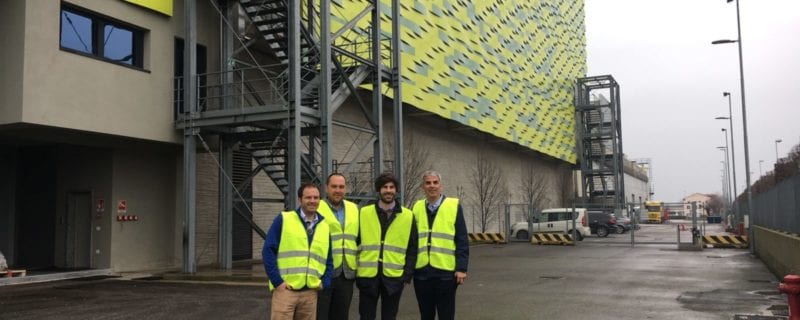
After the visit, the group travelled to Bologna to attend the Italian Buyers Seminar, where a large portion of the Italy feed and food industry met at a seminar organized by USSEC with the collaboration of Assalzoo (Italian Feed Association) and FCStone to discuss the soy market, sustainability, quality, and risk management.
In Spain, the group visited Padesa-Procasa, the second largest turkey producer in the country. The Padesa visit included the chicken and turkey processing plant. The organization also owns two feed plants and produces nearly 500,000 MT of feed mainly for their own consumption.
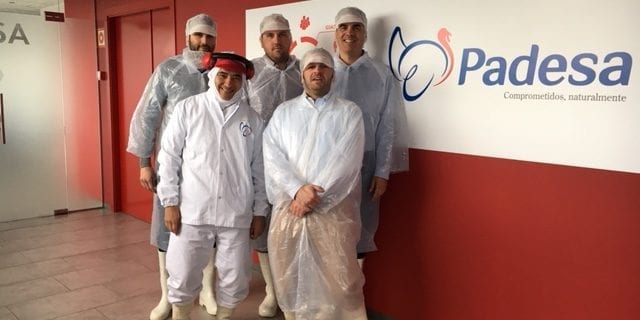
The group also visited the Tarragona Port Authority. Tarragona is a main port related to agriproducts in the Mediterranean Sea, unloading five millions tons or 40 percent of the total production of grains, proteins, and by-products, to supply the regional feed and meat production area in Spain.
In Barcelona, the group meet with Bunge and Cargill, both important players in the import and soy crush sector in Spain representing 70 percent of the business.
